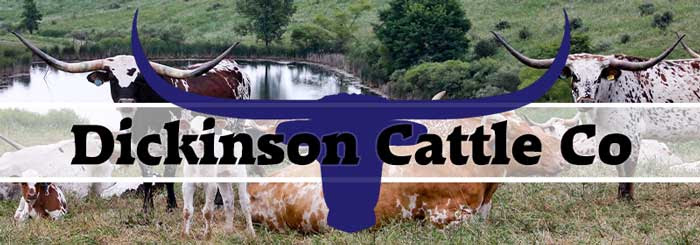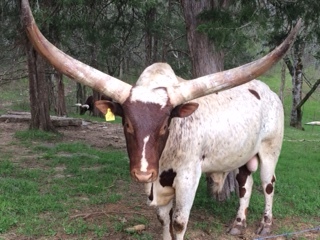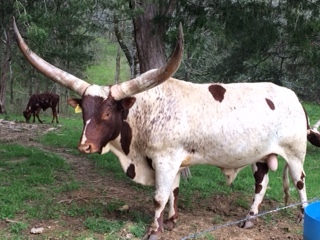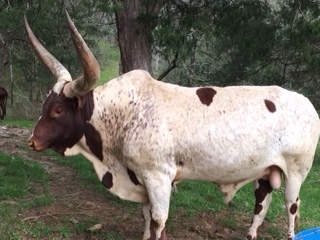General Curator
Virginia Safari Park
229 Safari Lane
Natural Bridge, VA 24578
Sarah@zoofariparks.com
(540) 291-3205 ext. 105
(240) 566-6119
On September 25 the World Watusi Association Board of Directors held their annual reorganization meeting in conjunction with the Lolli Bros. Exotic Animal Sale in Macon, Missouri. We had a packed list of agenda items to address. The results of the election for the Board were announced with the winners being Pat Burnett, Matt Moffat and Brian Sims. We all want to extend our congratulations to each member. The annual election for the Officer’s for the 2019 through 2020 year resulted in Blake Edwards, President: Garret Judd, Vice-President: Cindi Darling, Secretary and Barry Retchloff, Treasurer. All the contact information for the Board and Officers can be found on this website.
We wish to thank Pat Burnett for his previous years of serving as our President and Sheri Gurr for her tireless service as our Treasurer and director. As you all know this is a volunteer organization of non-compensated individuals and we are very lucky to have all of these people willing to serve and donate their time.
We will be covering all of the items addressed at our various meetings and will be addressing possible By Law changes that all of us must agree upon with our next vote.
One of the major items that was passed at this meeting is a temporary change in the Lifetime Membership fees. This fee is presently a one time charge of $500.00. The Board was asked to address this item and has implemented a new one time fee of $250.00 to be in effect from September 25, 2019 through February 1, 2020. When you receive your reminder of 2020 dues we will remind all members of this option. We sincerely hope that many of our members will take advantage of this opportunity.
The ballots have been mailed to all members in good standing of the World Watusi Association. There are three positions available and six candidates. All ballots must be postmarked back to the CPA on or before August 10, 2019. Anyone with questions is encouraged to contact any board member or candidate.
2019 Candidates
Sheri Gurr, Roosevelt, Utah 435-722-7699 RockingGwatusi@gmail.com
Matt Moffat, Piedmont, OK 405-205-0435 MattMoffat@ymail.com
Cree Sisneros, Pierce City, MO 903-305-1041 DRSISNEROS@LIVE.COM
Barry Retchloff, Fordland, MO 563-663-0840 Barry@Retchloff.com
R. P. ‘Pat’ Burnett, Wills Point, Texas 903-288-3334 tpd106@hotmail.com
Brian Sims, Seminole, Ok 405-200-6339 bsims56@icloud.com
|
|
|
|
|
|

In 1987, Dr. Ben Carson was the lead neurosurgeon of a 70-member surgical team that separated conjoined twins, Patrick and Benjamin Binder, who had been joined at the back of the head (craniopagus twins); the separation surgery held promise in part because of the hopeless existence had Carson not operated.
Conjoined twins are identical twins[1] joined in utero. An extremely rare phenomenon, the occurrence is estimated to range from 1 in 49,000 births to 1 in 189,000 births, with a somewhat higher incidence in Southwest Asia and Africa.[2] Approximately half are stillborn, and an additional one-third die within 24 hours.
 Whether it is human, animal or hatched fowl, deformities and mutations happen. Of course no one wants these unusual beings, but every effort is usually made so they will have a normal life.
Whether it is human, animal or hatched fowl, deformities and mutations happen. Of course no one wants these unusual beings, but every effort is usually made so they will have a normal life.
Every now and then calves are born with a condition called contracted tendons. It results in the calf not being able to straighten out its front pasterns so they can put their hooves flat on the ground.
Calves that have this end up walking with their front hooves turned back. Some people refer to this also as knuckling.The most often mentioned theory revolves around insufficient room in the uterus for extension and growth of the tendons. Most believe it more often occurs in older cows and in bull calves who form a ball in the uterus. For long periods the ankles are bent back and the tendons do not stretch pre-birth.
Some say it may be mineral related. The minerals that may be involved are manganese and selenium. Vitamin D and E also play a part in muscle and tendon growth in the infantile calf.
Unfortunately, this condition does not have a well-defined cause or solution that I’ve been able to find.
 Recently on Facebook this photo was published with questions about the why and how of the issue. What causes it and what does an owner do?
Recently on Facebook this photo was published with questions about the why and how of the issue. What causes it and what does an owner do?
Certain plants ( lupine, locoweed, bluebonnet, and poison vetch), if eaten by the pregnant female at just the right point in gestation may contribute to the problem.
The affected calf may straighten out after hobbling around several days, depending on the severity of the knuckling. It’s important in the first few days to make sure the calf nurses. Keeping the cow and calf in a smaller area is advised.
Many years ago at DCC a Buelingo calf was born knuckled. We let her attempt to correct and it was not humane. She began to get sores on the front of her ankles above the hoof from walking on the skin.
We carved two small boards about a foot long and rounded the corners. Both legs below the knee were wrapped with cloth. A big ball of cloth was placed on the joint above the ankle. The lower leg was stretched straight to where the calf could walk on the hoof correctly. Then the whole thing was wrapped with vet wrap. She immediately began to run and play.
In a week or so the splints were removed and no one would ever know that was a problem.
From veterinarian articles no appearance of genetic future occurrences were recorded.
Hopefully this will help when or if you ever have one. You don’t have to call Dr. Carson, just do it yourself. DD
View this article Online: https://www.texaslonghorn.com/
We are accepting nominations for candidates to the Board of Directors of the World Watusi Association for the fall 2019 election. There are 3 positions available. If you are interested or know of someone who would be please contact any member of the Nominating committee. Chairman; Garett Judd, garettjudd@yahoo.com, 270.670.7787: Vernon Base, vernonbase@gmail.com, 620-747-0798: Cindi Darling, watusi@liarslake.com, 417-634-4115. All nominations should be submitted by June 15, 2019. The 3 year positions up for election are those currently held by Pat Burnett, Sheri Gurr and Matt Moffatt.
 Foundation Pure Watusi Bull Registration # WWAFP4169 Rockin Gladiator, We call him Rocky!
Foundation Pure Watusi Bull Registration # WWAFP4169 Rockin Gladiator, We call him Rocky!

Under our FORMS menu we have available the submission form for measuring the horns of our animals. This is not a requirement, but we are attempting to build a data base with this information. Horns are obviously the most prominent feature of this breed and by setting up records we can use this information for marketing and breeding.
The fee for submission of this form to our office is $20.00 to cover the entry of the information on our database. The owner is welcome to submit their own measurement, however we do offer an Official measurement by qualified representatives. One representative can measure and submit the information on a live animal. A skull requires two representatives. We do have representatives available at our sanctioned auctions. Presently they will be at the Macon sale at Lolli Bros.
If there is an interest Blake Edwards is willing to offer a class at the Macon auction. Contact Blake at redhillwatusi@gmail.com or at 580-430-5050.
Robin Hancock our registrar wants to let our members know that there are new Registration Forms on the website as well as an updated Fee Schedule. She would like to remind all members that you can submit your photos of your animal to her by email, but that she needs to have THE ORIGINAL, SIGNED application sent in to the office with your payment. All too often she is receiving scanned copies by email and just the check in the mail.